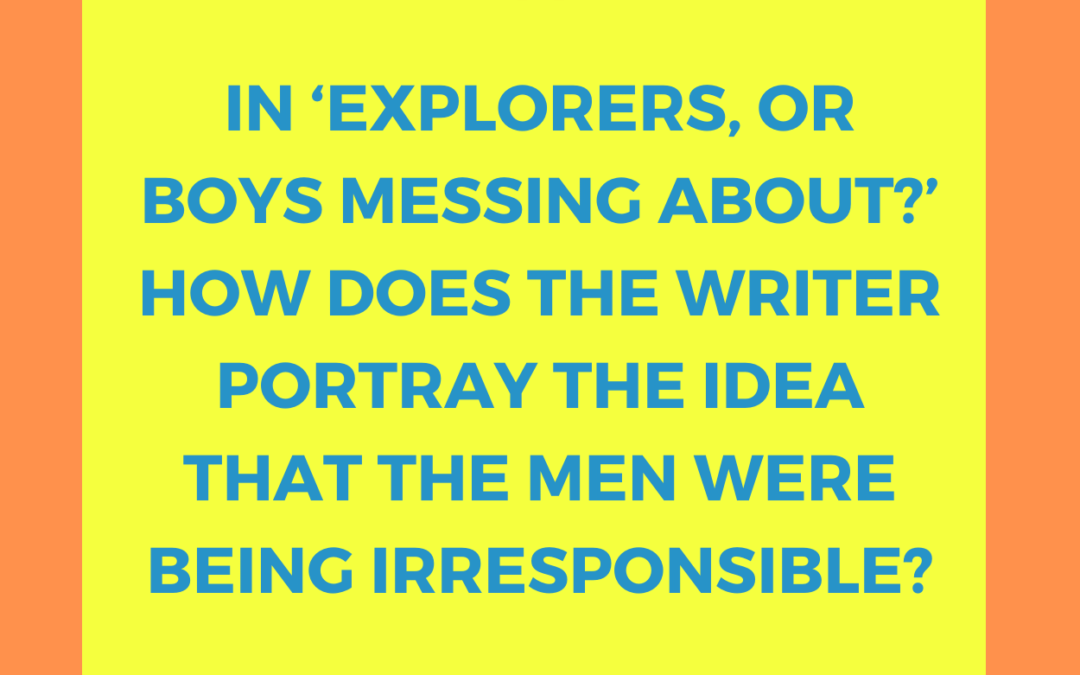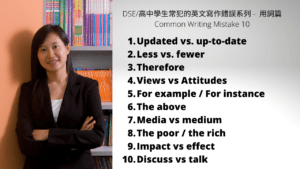Edexcel English IGCSE: Explorers, or boys messing about? by Steven Morris
Q1. In ‘Explorers, or boys messing about?’ how does the writer portray the idea that the men were being irresponsible?
You should write about:
- the portrayal of the maturity of the men;
- the men’s previous experience;
- the implications of the disaster;
- the writer’s use of language techniques.
Refer closely to the text to support your answer, and use brief quotations.
Edexcel English IGCSE Model Essay by an Expert
In this article, the adventuring men are portrayed as immature and complacent about their abilities to carry out their planned trip. The scale of the rescue operation shows how irresponsible the men were to put themselves at risk.
The writer portrays the men as childish, showing that they were not acting like responsible adults. The headline quotes Brooks’s wife, calling them “boys messing about”. This extended metaphor of the men being described as cheeky children continues throughout the article, creating a humorous yet disapproving tone. They are described as a “helicopter duo” who are going on a “new adventure”, creating the tone of an adventure story for children. However, this child-like imagery quickly disappears with the emotive description of their accident: their helicopter “plunged” into “icy water”. The juxtaposition of child-like and emotive vocabulary highlights how irresponsible the men were to treat such a dangerous operation as a childish adventure.
Although the men have had experience of successful expeditions, the writer chooses to highlight their previous disasters, suggesting that they were not qualified enough to take on such a dangerous challenge. The first main paragraph of the article states that “their last expedition ended in farce”, showing that the accident referred to in the headline is not their first. The following paragraph briefly outlines their most recent accident. By listing their mishaps so early in the article, the writer creates an impression of the men as irresponsible adventurers who do not learn from their mistakes. Later in the article, the writer lists the men’s previously successful expeditions and their qualifications. However, since they have already been portrayed as irresponsible, this list suggests that perhaps the men had become complacent as a result of their previous positive experiences.
The angle taken by the writer emphasises the cost of the disaster, with a particular focus on the personal cost to the reader. The article appears in The Guardian newspaper, which is generally read by middle-class adults, who are likely to pay taxes. Therefore the reference to the “taxpayer” in the headline grabs their attention and reminds them of the cost of the men’s irresponsibility. Furthermore, the scale of the rescue operation is portrayed through statistics: it was a “nine-hour” rescue and a boat came to rescue them from “180 miles away”. This boat came “streaming towards the scene”, showing the crew’s dedication to rescuing the men, and their sense of urgency. By giving details of the huge rescue operation, the writer shows the serious implications of the men’s irresponsible behaviour.
The men are portrayed as silly, complacent boys who did not think about the possible implications of their actions. The men are lucky that they survived the ordeal, showing that their irresponsibility could have had tragic consequences.




